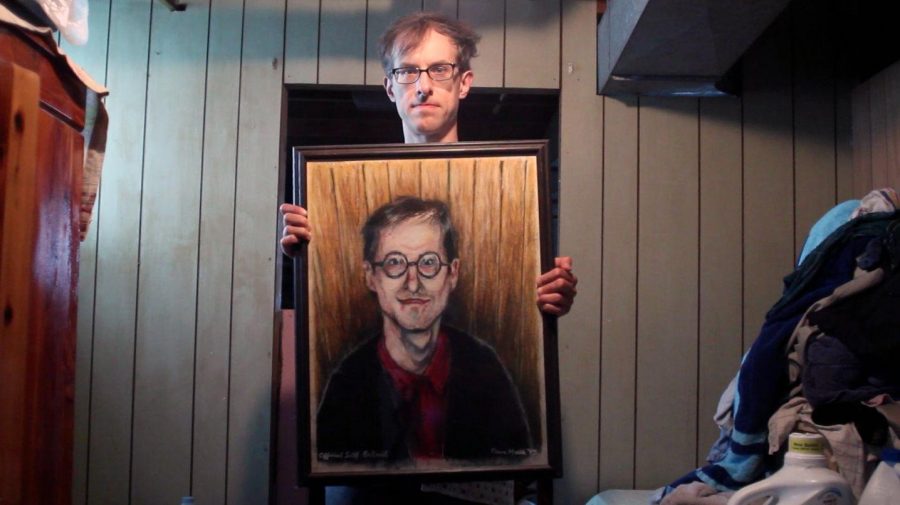Pitt alumna Julie Sokolow talks feature-film debut, ‘Aspie Seeks Love’
March 26, 2015
Documentary filmmaker and 2010 Pitt alumna Julie Sokolow guides viewers through loneliness and Pittsburgh with her recently completed her first feature-length film “Aspie Seeks Love.”
The documentary film focuses on David Matthews, a 49-year-old Aliquippa, Pa., resident struggling with his late-in-life diagnosis of Asperger’s syndrome, as well as his artistic and romantic pursuits. For the past 20 years, Matthews has posted personal ads on telephone poles all over town, inquiring about dates. In “Aspie,” Sokolow tracks his quest for romantic connection, and it has drawn some early critical acclaim on the festival circuit. The film premieres at a sold-out Regent Square Theatre screening tonight, but will open again at Harris Theater from April 25 to the 29 and at Row House Cinema May 3.
The Pitt News talked to Sokolow about becoming a filmmaker, the challenges of making “Aspie” and meeting with Matthews for the first time.
The Pitt News: When did you know you wanted to do documentary filmmaking?
JS: I think it was a lot of trial and error. I tried psychology at Pitt and did fiction writing, and I took a bunch of film studies classes, and that kind of led me down this wormhole of filmmaking and film production. Especially with having a lot of varied interests, filmmaking helped me combine those interests. And a lot of my favorite narrative filmmakers had started in documentary, so that was compelling — it was a way to make something low-budget and community-oriented. I guess there’s a lot more leeway with documentary filmmaking if you have a low budget, so it’s a good place to start for filmmakers. It’s just very rewarding to tell other people’s stories. It’s a little more social to be in collaboration with whomever you’re profiling.
TPN: What was your first meeting with David like?
JS: The first time I had coffee with him was at the Crazy Mocha in Bloomfield. I was already sitting with him, imagining him in that role, like the way that he spoke and everything — he just seemed perfect for following around with a camera, just because he’s so witty and his word choice is so unique. He’s a writer and an artist and used to being in the public eye, and I think that comes across sitting across the table from him. He’s also just incredibly sincere — he just can’t be anything other than himself, and he attributes part of that to the Asperger’s, that he doesn’t really know how to put up a facade. Basically he’s just always authentically himself and that’s very appealing to a filmmaker who’s trying to be a fly on the wall and not have the camera interfere with what you’re documenting.
TPN: How do you feel the film represents Asperger’s in general?
JS: This film to me was always more about David as a person, as a writer and artist and a hilarious commentator than the romantic struggles or the autism — those are just aspects of his life that he’s going through. But when that comes up, I think that this film may be unique in that it lets David and other people on the spectrum talk about their experiences rather than having a didactic tone in any way. So we try to let the people in the film who are experiencing life on the spectrum define it for the audience, rather than have a clinical, voice-over point-of-view.
TPN: Were any parts of the film more challenging than you expected?
JS: Probably post-production — the naivety that comes along with making your first picture is almost in some aspects necessary to even attempt it [at] all, because it’s so much more work than you think it’s going to be, and that’s part of the naivety that gives you the courage to do it. But I think I was under the impression that I would finish a rough cut and then I would magically know the next step, but I was very lucky that, through research and looking around the area of producers, I connected with Animal [her production company], which produced the Sundance-winning “Blood Brother,” and one of their producers came on as an executive producer of the film, which was huge.
TPN: What was the process of scoring your own film?
JS: I was writing songs all throughout making the film that had to do with my own love life, because that’s usually what my songs are like — heart on your sleeve, about romantic travails and the desire for independence and also to not be lonely and to connect. That’s a lot of the stuff that David was going through in his quest for love, so I thought, “Oh, this makes a lot of sense that this would be the soundtrack.” I thought it might not work, but we’ve been getting a lot of feedback that people like the score, which is really rewarding to hear, so I may be putting that album out in the coming months. So that would be my second solo album.
TPN: How do you feel now that the film is completed, compared to how you felt when you began three years ago?
JS: I guess there were times when [I was] shooting and editing where it was like being in the wilderness, being scared. “Is this ever going to get finished? Is a story going to emerge that people actually want to watch?” I guess having it finished feels like, “Oh, yeah, now everything’s fine.” But there were times of utter uncertainty, and I don’t necessarily do well with uncertainty.








